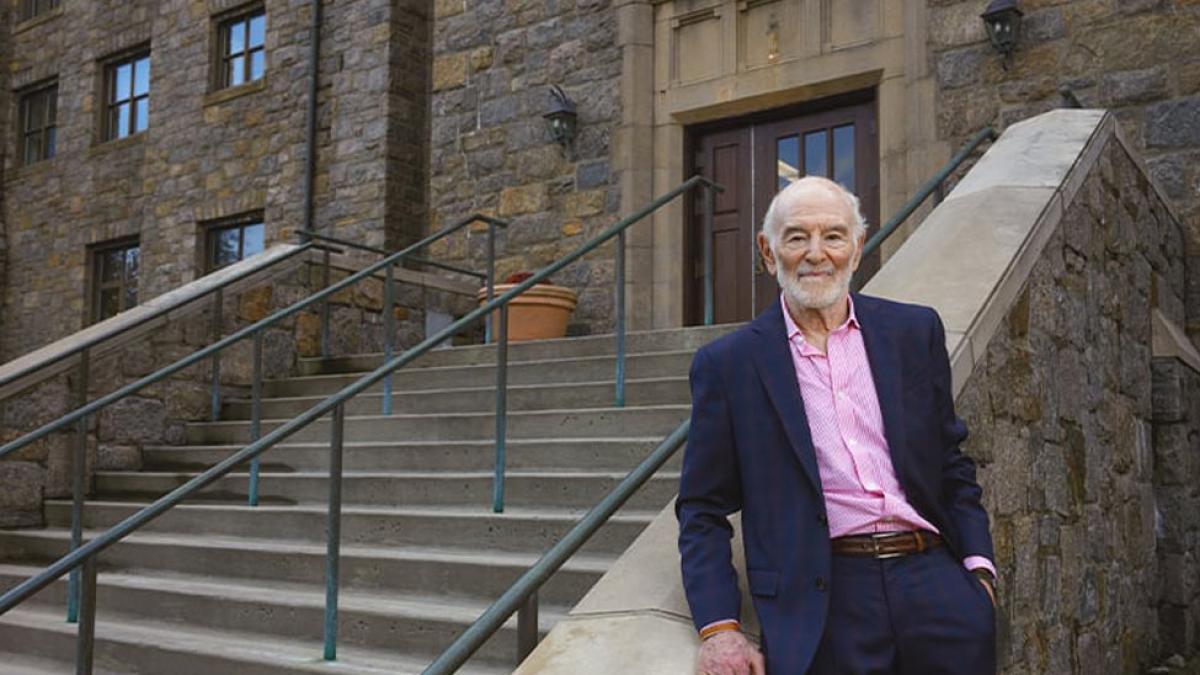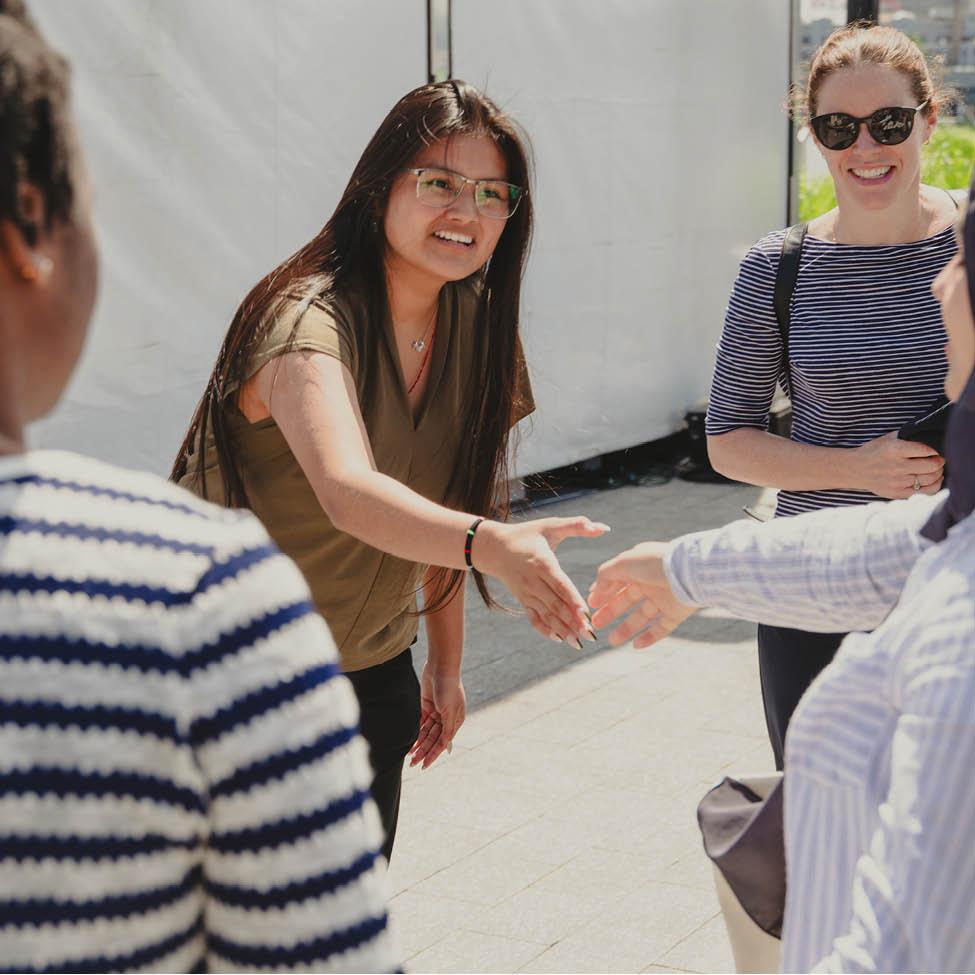
16th Summer of Wilson Funded Internships Kicks off with Orientation Event
On Thursday, May 30, the Helene and Grant Wilson Center for Social Entrepreneurship at Pace University hosted the Wilson Center Summer Intern Orientation, marking the beginning of a summer filled with meaningful work and professional growth for our 2024 summer cohort of Wilson-funded interns. The internship program is now in its 16th year and has funded 205 Pace interns since inception in 2008.


On Thursday, May 30, the Helene and Grant Wilson Center for Social Entrepreneurship at Pace University hosted the Wilson Center Summer Intern Orientation, marking the beginning of a summer filled with meaningful work and professional growth for our 2024 summer cohort of Wilson-funded interns. The internship program is now in its 16th year and has funded 205 Pace interns since inception in 2008.
Each year, the Helene and Grant Wilson Center's Funded Summer Internship Program funds up to ten students to work full-time summer internships at social enterprises and nonprofit organizations throughout the New York metro-area. The program is designed with a dual mission: to offer experiential learning and income for students with a passion for social innovation, social impact and the nonprofit sectors, and to supply those sectors with bright, highly motivated, and mentored students who can contribute significantly to their work. These internship experiences are to provide hands-on, substantive opportunities for students to make meaningful contributions.
The orientation program began with a welcome breakfast and coffee, where interns had the opportunity to meet Wilson Center staff and connect with their peers working across various nonprofit organizations, government agencies, and social enterprises in the NYC metro area. This initial meet-and-greet set the tone for a day filled with exploration and inspiration. Following breakfast, we headed outside for a walk to the historic South Street Seaport. The interns explored the local neighborhood, visited Pier 17, and captured photos while discussing Pace’s unique location in Lower Manhattan, its proximity and accessibility to our waterways, Governor’s Island and the New York Harbor.

A highlight of the day was the visit to the rooftop at Pier 17, where the interns were greeted by Stephanie a staff member from Assembly Person Grace Lee's office, representing New York's 65th Assembly District. Stephanie introduced herself and shared her motivations and goals, emphasizing the importance of civic engagement, the strength of local government and its ability to influence change. Her call to action served as a significant source of inspiration for the Wilson Center funded interns, encouraging them as they embark on their summer internships.
After an energizing visit to the South Street Seaport, the group returned to campus for lunch and a detailed onboarding discussion covering a number of logistical items, including timecard management and addressing any frequently asked questions. This session ensured that the interns were well-prepared and equipped with the necessary information for a seamless onboarding at their respective summer employer.
The Helene and Grant Wilson Center for Social Entrepreneurship is proud to support our interns as they engage in transformative work this summer, contributing to the vibrant nonprofit and social enterprise sector in New York. This orientation event not only provided essential information but also inspired and motivated our Pace interns, underscoring the importance of their contributions to the community.
Lubin students named United Nations Millennium Fellows
Several Lubin students were selected for the prestigious and highly competitive United Nations Academic Impact and Millennium Campus Network (MCN) Fellowships.

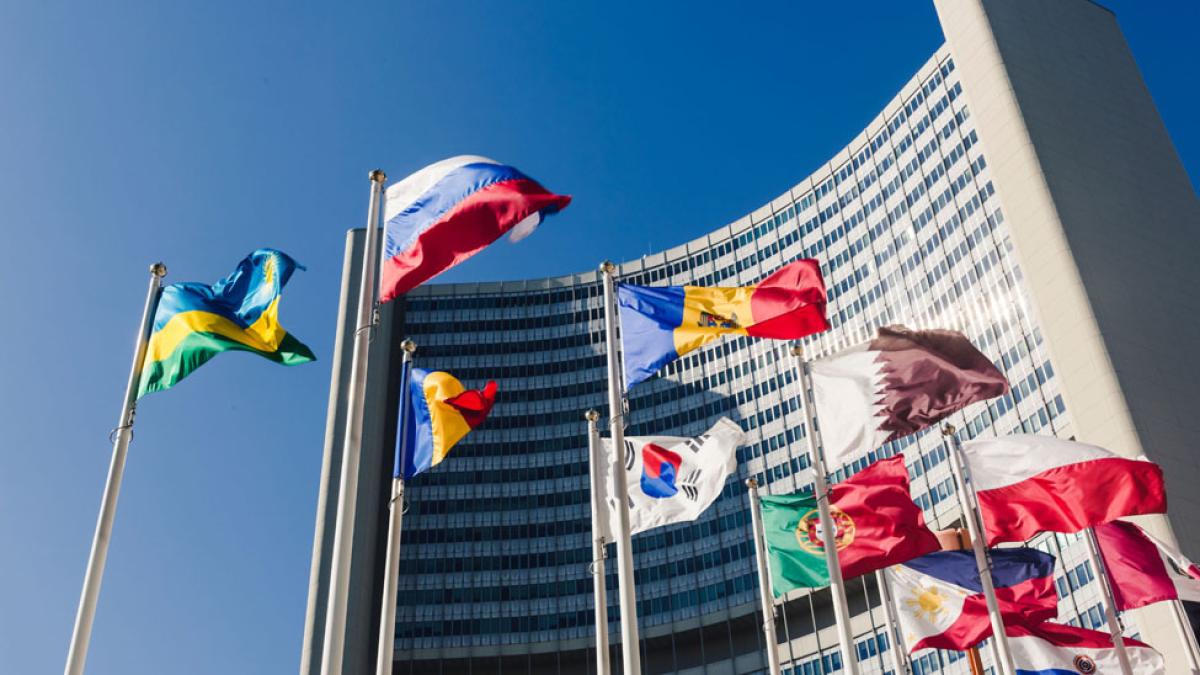
Twenty-five Pace University students were selected for the prestigious and highly competitive United Nations Academic Impact and Millennium Campus Network (MCN) Fellowships. Over the next few months, selected students will be part of this global leadership development program as they launch their own individual or group projects related to the United Nations' Sustainable Development Goals (SDGs). Students will have the opportunity to connect with peers and leaders from all over the world while engaging in world-class professional development sessions.
Meet the Lubin Fellows
Abdulla AlSuwaidi
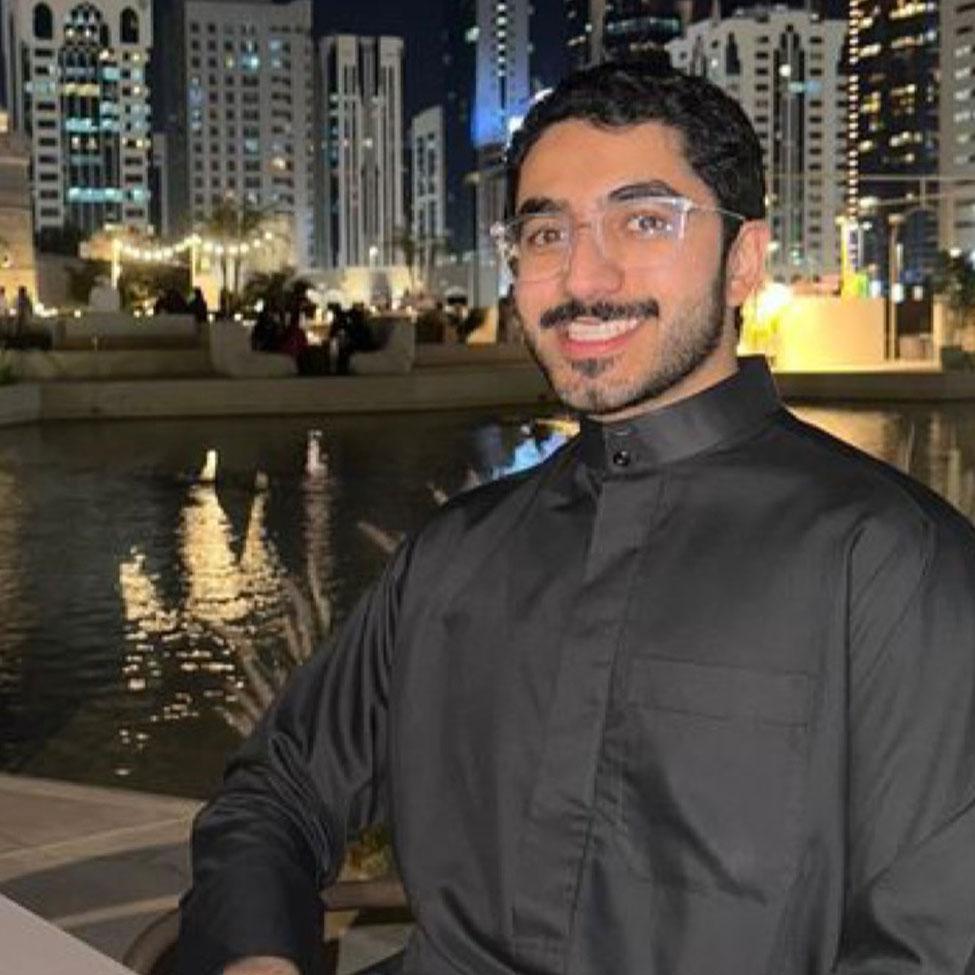
Class of 2025
Major: Finance
Minor: Political Science
UN Project Focus: SDG 6 - Clean Water and Sanitation
Abdulla is excited to work with like-minded people to try to make the world a better place. He is also the current United Arab Emirates Youth delegate and is excited to include the voices of youth in important conversations.
Madison Everlith
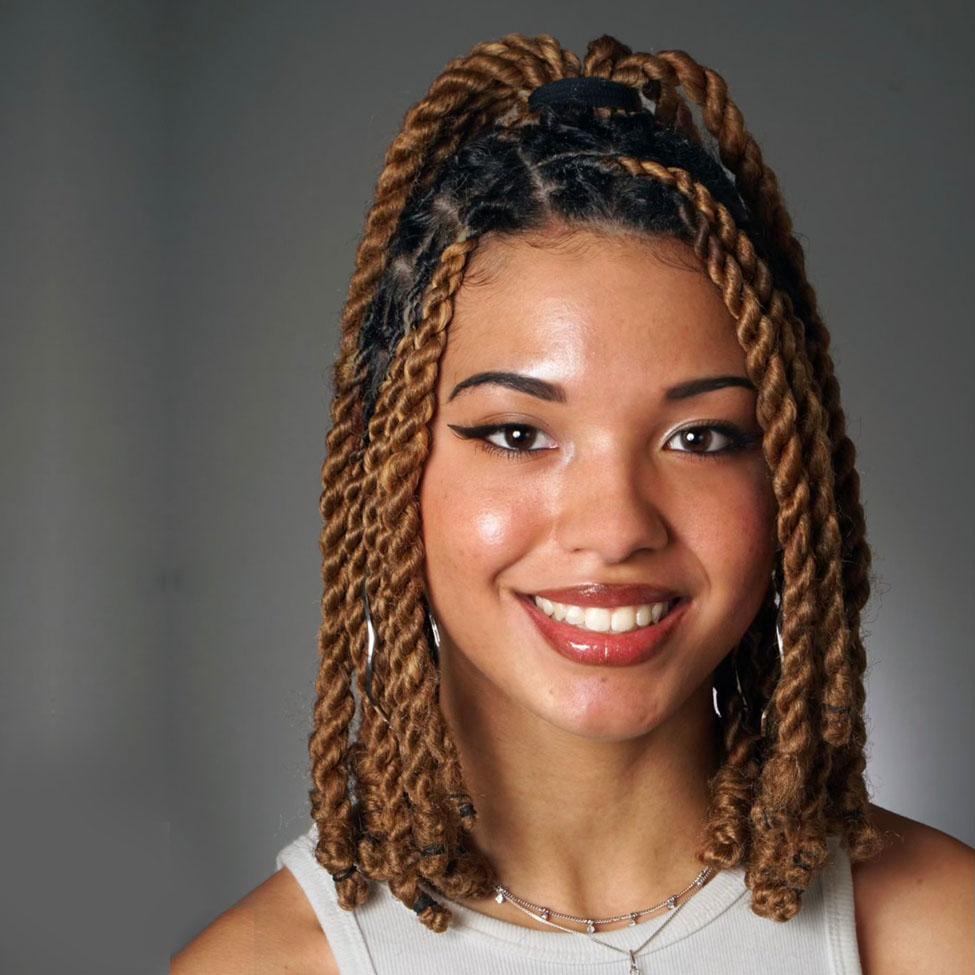
Class of 2027
Major: Women's and Gender Studies
Minor: Fashion Marketing
UN Project Focus: Gender Equality
In her project, Madison Everlith plans to address the marginalization of Black women in healthcare. She believes this is an important topic that more people should be aware of and educated about, and she hopes to boost awareness on the New York City Campus. Madison plans to represent the Dyson Women's Leadership Initiative (WLI) as she takes on her project to continue the fight for the future of gender and race equality.
Akithma Moraes

Class of 2027
Major: Political Science, BA
Minor: Business
UN Project Focus: Gender Equality
About her experience with the UN Fellowship, Akithma says, "I am excited to spend the fall semester working on the "Sovereign Empowerment Initiative," which aims to address gender-based violence by creating an accessible online platform for survivors. This initiative will provide crucial resources, peer support, and expert-led workshops, fostering a safe virtual community." She hopes to empower survivors to connect, share their experiences, and challenge societal norms surrounding gender-based violence.
Mikaela Regan
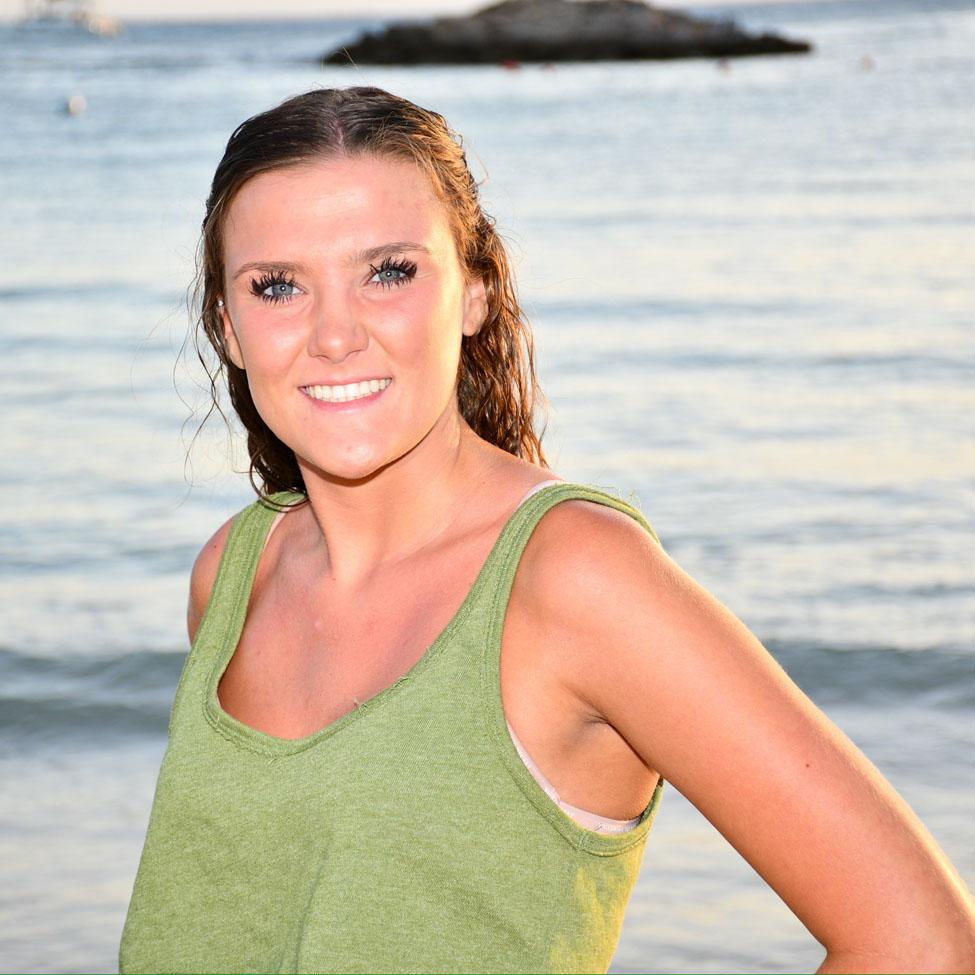
Class of 2026
Major: Global Marketing Management
Double Minors: Environmental Studies and Sustainability
UN Project Focus: Sustainability
Mikaela has been reading National Geographic publications and watching movies about nature and animals since she was a small child. Giving back has always been a passion of hers, but she never understood why. She made the decision to apply her love for the natural world to finding a means of preserving its splendor. She is thrilled to start this adventure; the United Nations Fellowship provides her with the opportunity to collaborate with peers who share her passion to help make a difference in the world.
Williams Quoted in NY Times on Kamala Harris Outpacing Depictions of Women of Color as Presidential Candidates by Hollywood
Associate Professor of Communication and Media Studies Melvin Williams, PhD, was quoted in the New York Times in an article examining Vice President Kamala Harris’s historic run for US president, and specifically how it has outpaced Hollywood depictions of women of color as presidents in fictional film and television programming.
Williams referred to the lack of women of color playing commander in chief roles in the entertainment industry as an example of “symbolic annihilation,” an academic term describing the exclusion of groups in popular culture and mass media.
“We don’t put it on-screen, so you don’t see it as a possibility, and large audiences don’t even begin to fathom it as a possibility,” he said.
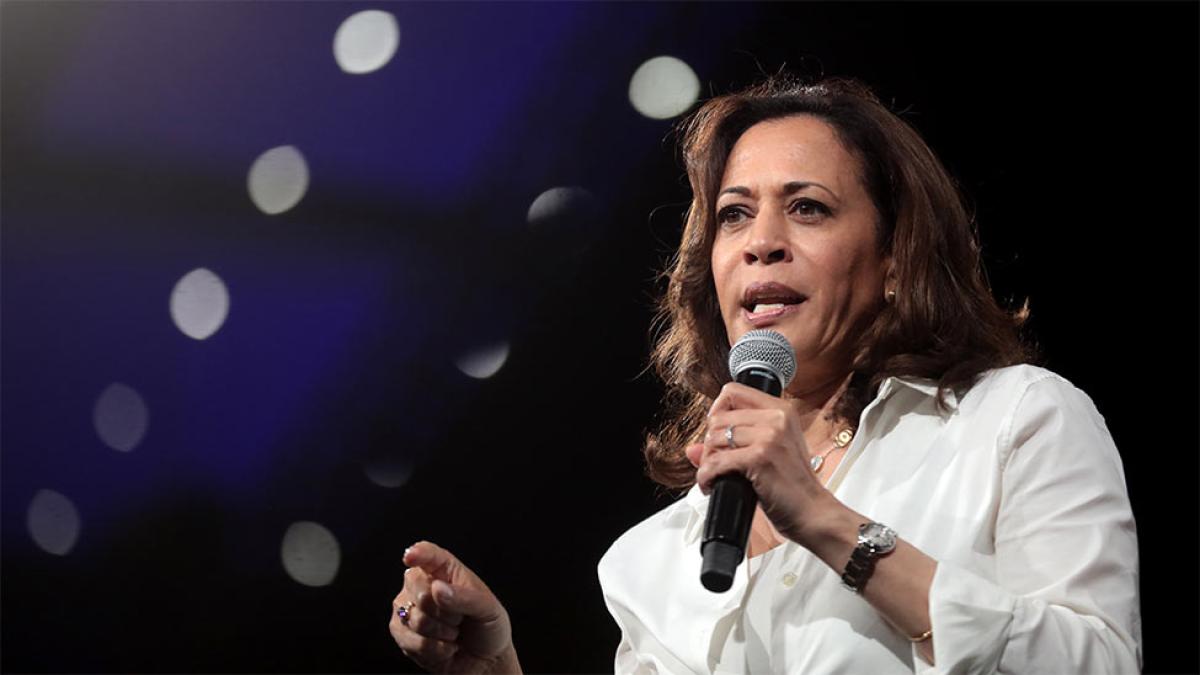
Pace University’s Sands College of Performing Arts and The Broadway League Launch Career Pathway Program
Pace University’s Sands College of Performing Arts and The Broadway League launched the first-ever Career Pathway pilot program, offering an exceptional opportunity for aspiring theatre professionals.
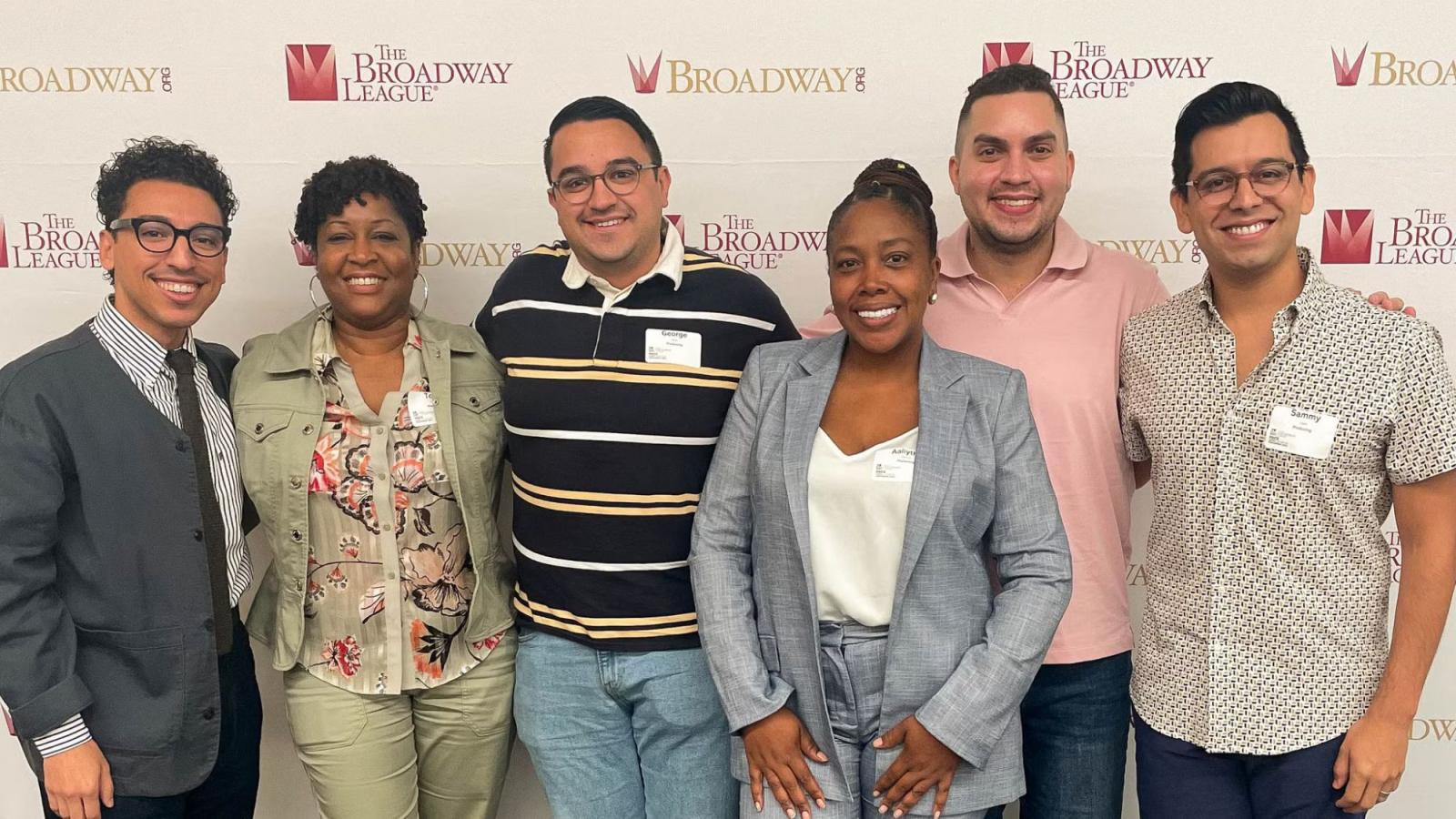
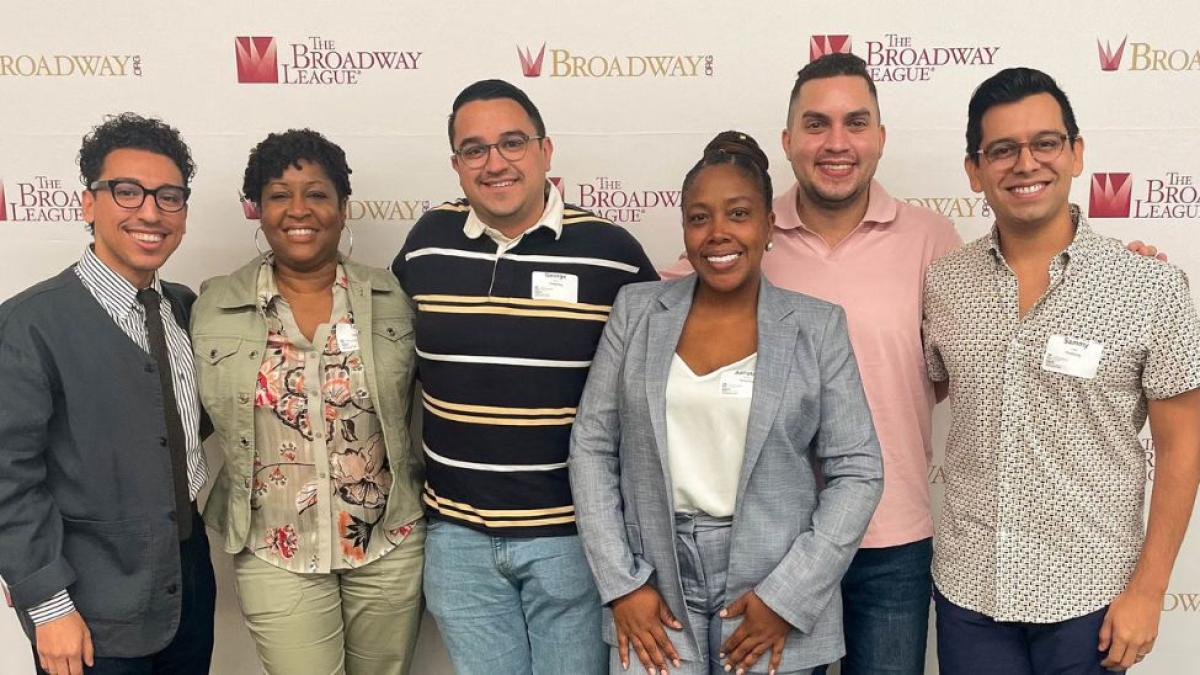
On September 14, 2024, Pace University’s Sands College of Performing Arts and The Broadway League introduced the Career Pathway pilot program—an exciting new initiative aimed at providing aspiring theatre professionals with invaluable industry insights and connections. The event, held on Pace’s New York City Campus, brought together forty students and six distinguished Broadway professionals in casting, marketing, and producing.
Sands College's Musical Theatre and Commercial Dance Department Chair Jesse Carlo, PhD, opened the event with a warm welcome. A panel discussion followed, featuring industry leaders Kristian Charbonier, Toni Isreal, Sammy Lopez, Xavier Rubiano, Aaliytha Stevens, and George Strus, who shared their personal career journeys and advice on navigating behind-the-scenes roles in the theatre industry. Moderated by The Broadway League’s Darrelle Johnson (Director of Inclusion and Diversity) and Tré Dukes (EDI Associate), the panel provided students with an inside look at Broadway’s diverse career pathways.
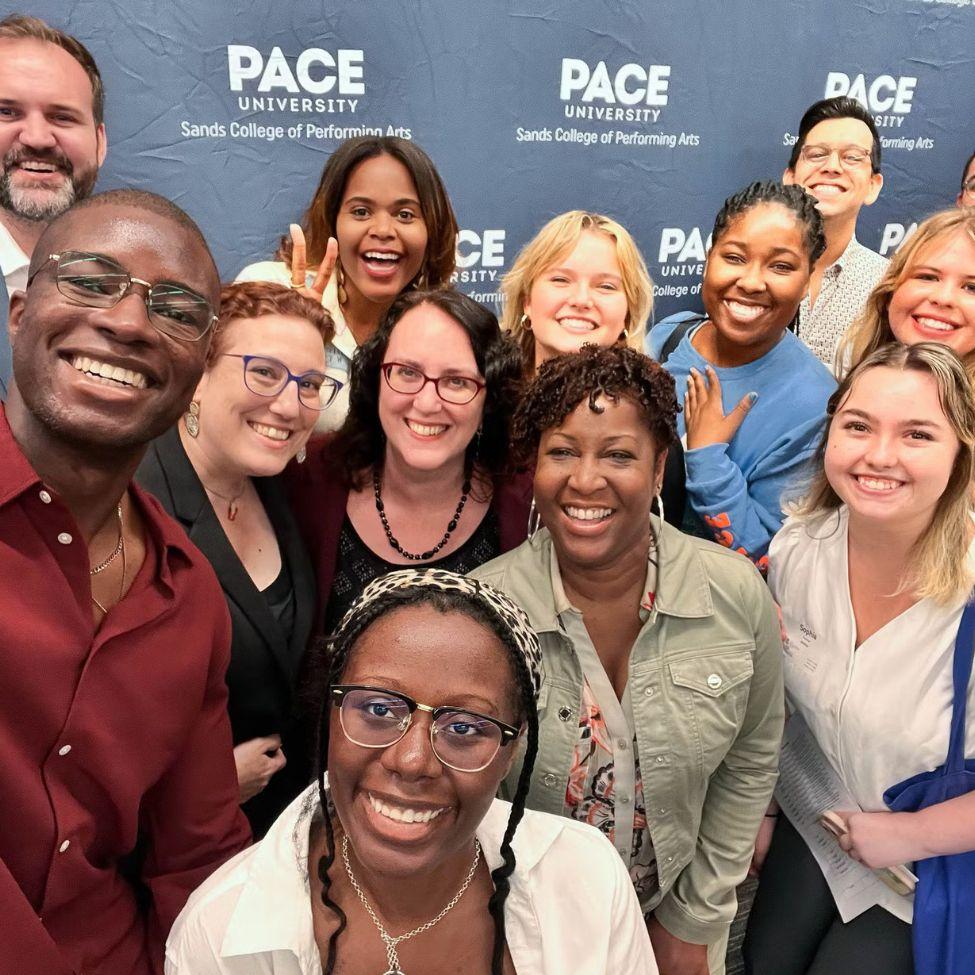
Students then participated in breakout sessions focused on casting, marketing, and producing, where they received practical, firsthand advice from the panelists. The day concluded with a networking session that allowed students to connect directly with industry leaders and foster valuable relationships.
This landmark partnership exemplifies Pace University’s commitment to connecting academics with real-world experience. It gives students direct access to influential voices, empowering them to pursue their passions and build successful, impactful careers in the performing arts. "We are so thrilled about this new partnership with The Broadway League," Jesse Carlo said. "At Sands, we are aware of the importance of introducing our students to the full breadth of the industry and the extraordinary opportunities that exposure provides. We are looking forward to many more collaborations with The League."
Kennedi Tichy ’26 Discovers a World of Opportunity Studying Abroad in Lyon, France
Kennedi Tichy, a business management student at Pace, shares her transformative experience studying abroad in Lyon, France. From the vibrant culture to newfound friendships across the globe, Kennedi reflects on how this unique opportunity broadened her horizons.

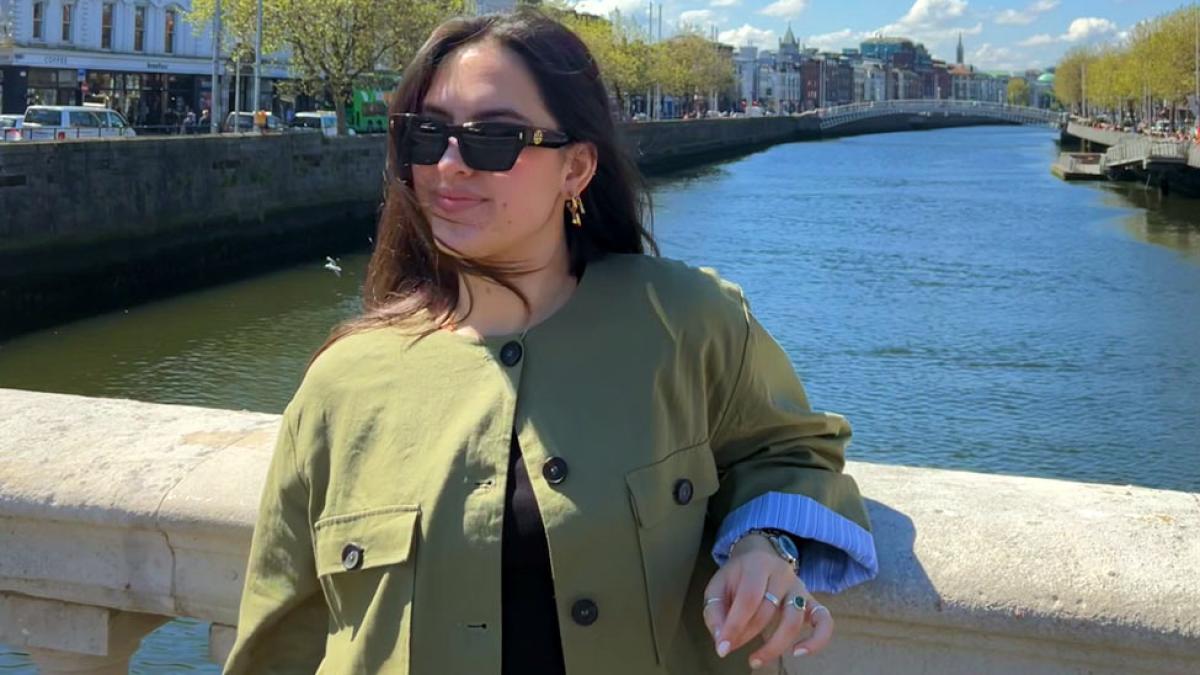
For Kennedi Tichy ’26, a business management major at Pace’s Lubin School of Business, studying abroad in Lyon, France, was the fulfillment of a lifelong dream. From the moment she started at Pace in 2022, Kennedi knew she wanted to explore the world through education. Her decision to choose Lyon—the culinary capital of France—was driven by curiosity and a desire to challenge herself.
"I didn't speak a lick of French or even know anything about Lyon, but as I put in more research, learning that it is the culinary capital of France, the third largest city in the country, and more, I was determined to study there," Kennedi shared. What started as a leap into the unknown quickly became a life-changing journey.
As the only student from Pace in her Spring 2024 cohort at the Centre d'Études Franco-Américain de Management (CEFAM), Kennedi’s experience was as challenging as it was rewarding. “It was a little overwhelming going to a new country all on my own, but the second I arrived, I was so eager to see what the city had to offer.”
“I traveled on the weekends to different countries...I am forever grateful for all of the experiences and memories I gained studying abroad.”
At CEFAM, Kennedi found a welcoming academic environment. “The university was small but had excellent staff and students, making the transition into a new school very easy. I was very social and ended up meeting and befriending people from all over the world,” she recalls.
Kennedi’s weekends were filled with adventures across Europe, from Barcelona to Copenhagen and Switzerland. “I traveled on the weekends to different countries...I am forever grateful for all of the experiences and memories I gained studying abroad.”
One of her most memorable moments was navigating Lyon’s renowned culinary scene. Dining at bouchons, family-owned restaurants offering traditional Lyonnaise dishes, gave her a deeper appreciation for French culture. “I adapted to French dining customs, which emphasize leisurely meals and savoring each course,” she explained. This cultural immersion helped Kennedi connect on a deeper level with her surroundings.
While language barriers presented challenges, Kennedi embraced the discomfort. “My biggest challenge was not speaking French...but I tried my best to learn by practicing with friends and using common greetings.” Whether taking a Bachata class in French or navigating daily life, Kennedi’s resilience and openness transformed obstacles into opportunities for growth.
Beyond the academic and cultural experiences, Kennedi’s time in Lyon left a lasting impact on her future goals. “I built relationships with local students and professionals that created a network I can tap into for future career opportunities. These connections helped me understand the importance of networking in a global context.”
Kennedi encourages fellow students to take advantage of Pace’s study abroad opportunities. “I know it may seem overwhelming and scary, but it is absolutely WORTH IT to go. Life is so short, and an opportunity like this is too good to pass on. Approach unfamiliar situations with curiosity rather than apprehension.”
For students interested in exploring similar life-changing experiences, visit Pace’s Study Abroad Office and attend a Study Abroad Fair. You never know what adventures await you!
More from Pace
Why not earn credits for your degree while exploring the world? At Pace, you can take in-depth courses or save open electives for amazing international experiences. Did you know a semester abroad can cost the same—or even less—than a semester at Pace?
From City Hall to Albany, your vote shapes New York’s future. Local and state elections are happening just around the corner. From registering to vote, casting your ballot on campus, to attending fun voter engagement events, Pace University has you covered. Check out our guide to all things voting, powered by the Center for Community Action and Research and the Andrew Goodman Foundation.
Meet Deniz Ilgaz Sen '21, an international student from Turkey and an Arts and Entertainment Management major who quickly made New York City and Pace University her new home. She credits her great experiences at Pace to faculty and friends. To take a little break from the city that never sleeps, Deniz decided to study abroad in Florence, Italy, where she was able to adapt to yet another different culture.
Bracing for Impact in the AI Revolution
As artificial intelligence started reshaping industries, software engineer Ross Carvalho ’25 knew it was time to evolve. He came to Pace to master the AI foundations, a decision which has opened doors to mentorship, hands-on experiences, and even an internship with Apple.


Ross Carvalho ’25 built a successful career as a software engineer in India, but with the rise of generative artificial intelligence (AI) tools like ChatGPT, he knew it was time to take his skills to the next level and future-proof his career. “By 2022, I saw a trend,” Ross explains. “Companies weren’t just looking for software engineers; they wanted AI software engineers.”
Ross knew that to compete, he needed to build a greater basis of AI knowledge and began researching universities that offered strong programs with an AI-focus. He was drawn to graduate programs at Pace’s Seidenberg School of Computer Science and Information Systems, which integrates AI fundamentals throughout its curriculum. “At Pace, I’ve taken courses in deep learning, computer vision, and natural language processing,” he shares. “These are the fundamental blocks of AI, and Pace provides a solid foundation in these areas.”
Companies weren’t just looking for software engineers; they wanted AI software engineers.
As Ross prepared to begin his studies in New York City, he came across an opportunity that felt almost too perfect—a lab assistant position in Pace’s Computational Intelligence Lab. It was the ideal complement to the AI-focused curriculum he was pursuing—allowing him to not only learn, but actively contribute to AI projects.
He worked with fellow student, now adjunct professor Darsh Joshi ’24 who became a mentor to him, creating the infrastructure that would give students both the technology and the collaborative space to create AI models and predictive systems. They both envisioned the lab as a place to offer education ranging from data science concepts to practical industry experience. “We decided we wanted to bridge this gap from university to corporate by providing them these courses,” says Ross. “So, the lab performs those two functions right now. First is providing a platform that gives students access to computing services, and the second is providing educational content and mentoring sessions.”
It’s not just about learning in the classroom—it’s about applying those skills to solve real-world problems.
With his growing experience at Pace, Ross applied for internships during his first year, eventually landing a competitive six-week summer internship at Apple. Ross worked in one of Apple’s Bay Area campuses as a DevOps (development and operations) intern, helping manage the platform responsible for building applications like iMovie. “I worked on improving the platform, building a framework to test its various components, and even doing some production deployments, which was rare for interns,” said Ross.
Ross credits Pace’s Career Services with helping him secure the internship. “Career Services was incredibly helpful, especially with my resume. They taught me how to tailor my resume to specific job descriptions,” he says. “They provided personalized advice through multiple sessions, helping me tune my resume for each application.”
As Ross continues to build his expertise in AI, he remains grateful for the opportunities Pace has provided. “Pace has given me a platform to grow and explore,” he reflects. “It’s not just about learning in the classroom—it’s about applying those skills to solve real-world problems.”
Pace students have huge potential to create a big impact.
Since leaving India to continue his education, Ross has gone beyond basics with AI, finding mentorship and hands-on experiences to deepen his skills along the way. “Pace has given me a lot,” he says. “They have given me an on-campus job. They have provided me with guidance wherever required, especially from my mentors like Darsh Joshi, and all my friends here, my Pace family.”
For others looking to expand their AI expertise, Ross recommends students find problems where AI could have an impact and start there. ”Students should venture out. Focus, solve, participate in hackathons and competitions where these organizations work with us to actually solve a problem,” he says. “Pace students have huge potential to create a big impact.”
Learn more about AI and machine learning at Pace’s Computational Intelligence Lab.
Press Release: Pace University Partners with Sixth Street and Goldman Sachs to Host Inaugural Fintech Conference
Pace University’s Seidenberg School of Computer Science and Information Systems partnered with leading global investment firms Sixth Street and Goldman Sachs to host the University’s inaugural fintech conference, Pace of Fintech: Accelerating Innovation Conference.


Discussions focused on Cybersecurity, Cloud Infrastructure and Artificial Intelligence
Pace University’s Seidenberg School of Computer Science and Information Systems partnered with leading global investment firms Sixth Street and Goldman Sachs to host the University’s inaugural fintech conference, Pace of Fintech: Accelerating Innovation Conference.
The conference held last week included a conversation on cutting-edge technology shaping the future of finance. Industry leaders and esteemed Pace faculty provided experts insights on automating analog markets, cloud infrastructure, cybersecurity, quants in finance, and generative AI. A discussion of early career networking, led by Sixth Street and Pace’s Career Services, provided valuable career-building advice to upcoming and new graduates.
“Pace University’s first-ever fintech conference brought together the top experts in the fields of finance, artificial intelligence and internet security to share their industry knowledge,” said Marvin Krislov, president of Pace. “We see ourselves at the forefront of these sectors and look forward to continuing our work in them alongside our corporate partners.”
The University launched its own artificial intelligence (AI) lab earlier this year. The space serves as the central hub for the Pace community, offering training and opportunities for students, faculty and staff.
The Seidenberg School of Computer Science and Information Systems currently offers AI degrees in a Bachelor of Science in computer science, computation economics and data science. The school is planning to launch two new artificial intelligence master’s programs, with a Master of Science in artificial intelligence and a Master of Science in applied artificial intelligence.
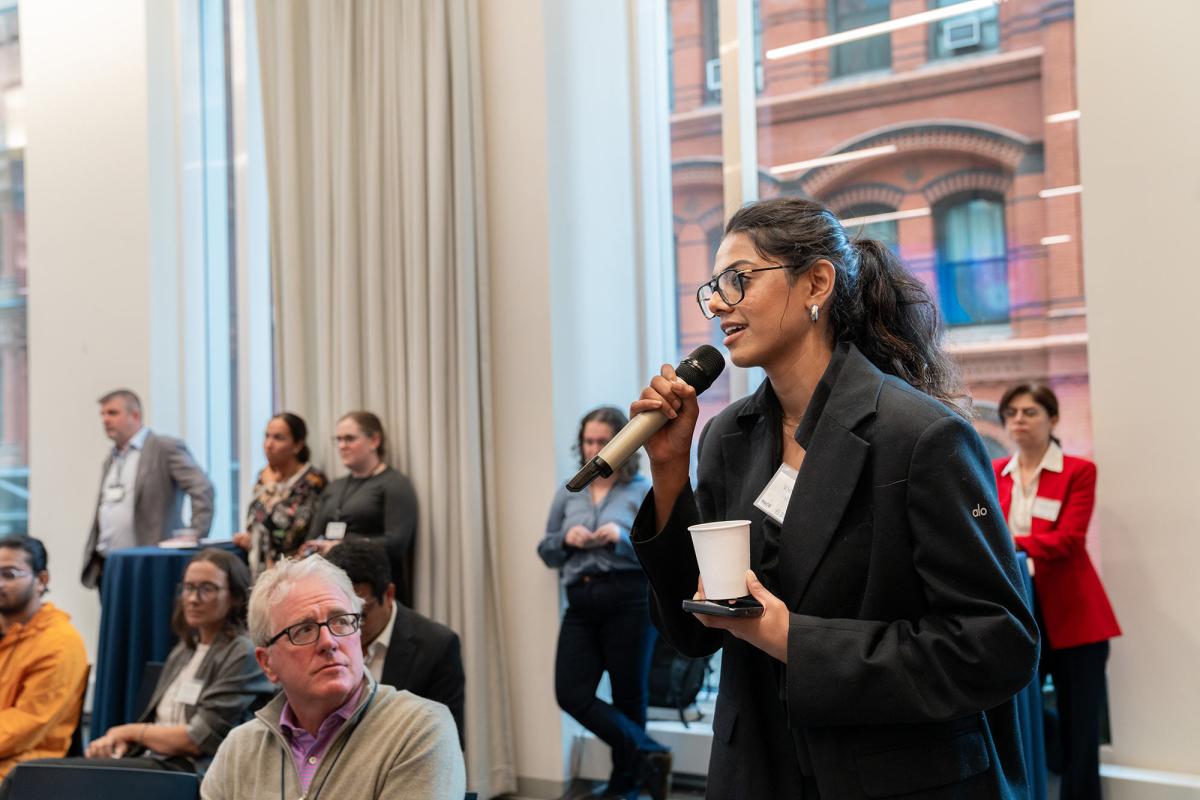
Pace University and Lubin School of Business student Vidhi Kothari offered the following: “The discussion was fascinating, especially the fireside chat. It struck me that we’re on the brink of a technological revolution akin to the internet boom. This could redefine our future in profound ways.”
Pace speakers and participants included:
- Marvin Krislov, President
- Phyllis Mooney, Assistant Vice President, Career Services and Employer Relations
Other featured speakers included:
- Adam Korn, Chief Information Officer, Sixth Street
- R. Martin Chavez, Partner and Vice Chairman, Sixth Street
- Marco Argenti, Chief Information Officer, Goldman Sachs
- John Madsen, Head of Core Engineering, Goldman Sachs
- Armen A.A. Avanessians, Chair, Columbia Universities Data Science Council, and Member, Columbia Engineering's Visitors Board, Columbia World Projects President's Council, Columbia University (former Head and Chief Investment Officer, Goldman Sachs)
- Stephanie Cohen, Chief Strategy Officer, Cloudflare
- David Stone, Head of North American Financial Services, Office of the CISO, Google Cloud"
The day’s events included panel discussions on Automating Analog Markets; Quants in Finance; Cybersecurity; Cloud Infrastructure; Early Career and Generative AI Applications.
Mooney, in the Career Networking Workshop, told the audience: “Be open minded before you begin your job search. Spend a lot of time reading job descriptions and researching the websites of the companies you are interested in. What are the skills and experiences they are looking for and then look to acquire those skills inside and outside the classroom.”
To close out the conference, a 45-minute fireside chat included President Krislov, R. Martin Chavez, Partner and Vice Chairman, Sixth Street; Adam Korn, Chief Information Officer and Chief Operating Officer, Sixth Street; and John Madsen, Chief Technology Officer & Head of Core Engineering, Goldman Sachs.
About Pace University
Since 1906, Pace University has been transforming the lives of its diverse students—academically, professionally, and socioeconomically. With campuses in New York City and Westchester County, Pace offers bachelor, master, and doctoral degree programs to 13,600 students in its College of Health Professions, Dyson College of Arts and Sciences, Elisabeth Haub School of Law, Lubin School of Business, Sands College of Performing Arts, School of Education, and Seidenberg School of Computer Science and Information Systems.
About the Seidenberg School of Computer Science and Information Systems
The Seidenberg School of Computer Science and Information Systems at Pace University is a leading institute of technology education. Students experience a dynamic and expansive technology education at the undergraduate and graduate levels. One of the first comprehensive schools of computing in the nation, the Seidenberg School is strategically located in the heart of NYC’s tech scene, right on the doorstep of New York’s most promising companies. With access to established tech giants and exciting new start-ups from both the New York City and the Westchester campus, Seidenberg offers the opportunity to connect, intern with, and enjoy lucrative tech jobs following graduation. Through partnerships with leading tech firms, banks, federal agencies, and global institutions, the school’s curricula and programs are designed to ground students in the fundamentals while offering numerous hands-on experiential learning opportunity. The faculty includes numerous experts in artificial intelligence, cybersecurity, data science, game development, software engineering, and much more, who operate labs and centers providing students with practical experience and connections that lead to impressive internships and jobs.
About Sixth Street
Sixth Street is a global investment firm with over $75 billion in assets under management and committed capital. Sixth Street uses its long-term flexible capital, data-enabled capabilities, and One Team culture to develop themes and offer solutions to companies across all stages of growth. Founded in 2009, Sixth Street has more than 600 team members including over 250 investment professionals operating around the world.
About Goldman Sachs
Goldman Sachs is a leading global financial institution that delivers a broad range of financial services to a large and diversified client base that includes corporations, financial institutions, governments, and individuals. Founded in 1869, the firm is headquartered in New York and maintains offices in all major financial centers around the world.
Pace Women's Justice Center: Decades of Impact
PWJC’s many programs offer free legal assistance, free legal clinics open to the public, and training for professionals. It also has a robust program to recruit, train, and supervise volunteers. A dedicated team of volunteers include those who have some legal training — such as lawyers, paralegals, and law students — and those who bring other skills to Center programs, such as community members, and high school and college students.
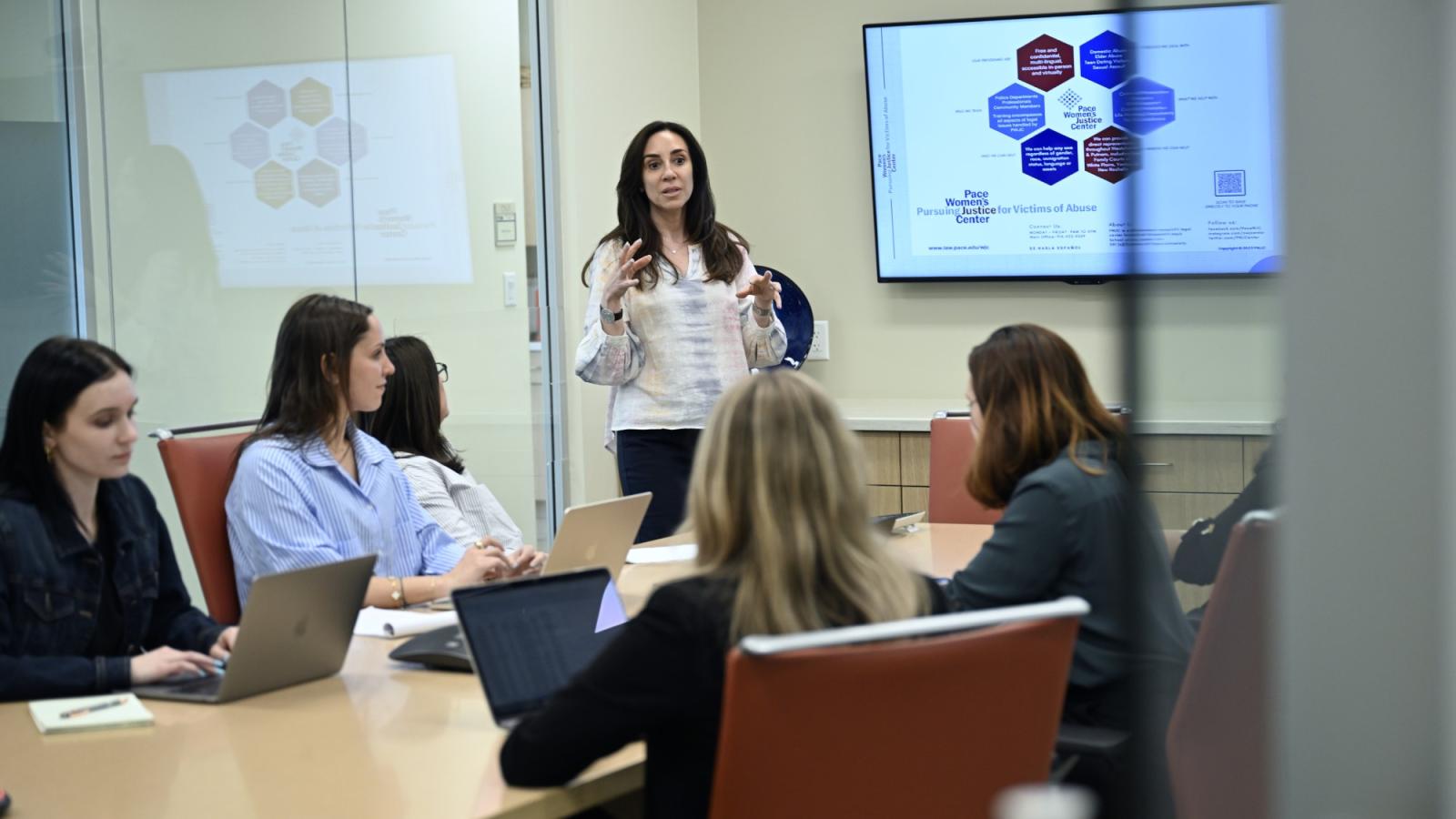
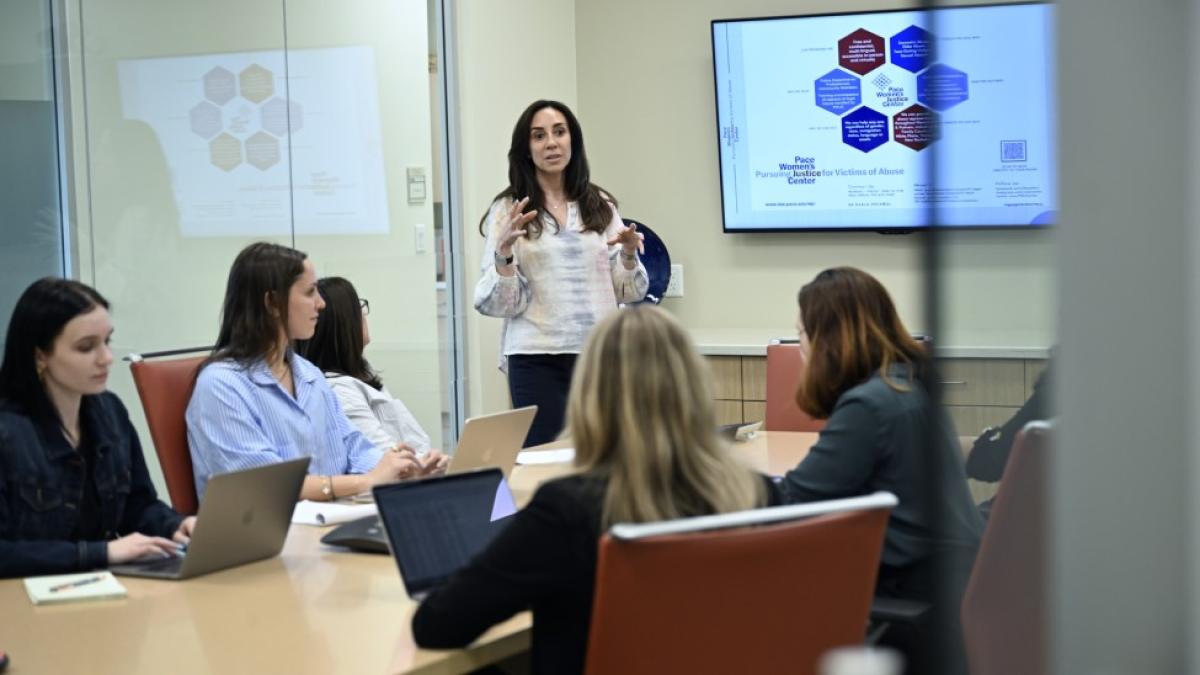
Lesly Sandoval was in a terrible bind.
Her ex-husband threatened her and failed to pay child support, but as a single mother and student in a full-time internship, she didn’t have enough money to hire a lawyer. So she turned to the Pace Women’s Justice Center.
“My experience with PWJC was life changing. Through their support, I was able to have a clear path moving forward with not only my life, but that of the most treasured people in my life: my children. PWJC’s representation made it possible for me to focus on what was most important during that time; my children, school, safety, and housing,” Sandoval said.
PWJC’s team of lawyers, paralegals, and staffers helped her obtain a court order of protection, as well as financial and even emotional support. “They created a safety net for my family, where our fears and anxiety related to the legalities of the situation were managed from a place of efficiency, knowledge, and experience. There was constant reassurance and support though every step of the process.” Sandoval, who now has a master’s degree, works for a New York state agency providing services for the developmentally and intellectually disabled. “I am forever grateful at the blessing that PWJC brought to my life. I am a changed and better person because of the care they took to ensure that my children and I were protected.”
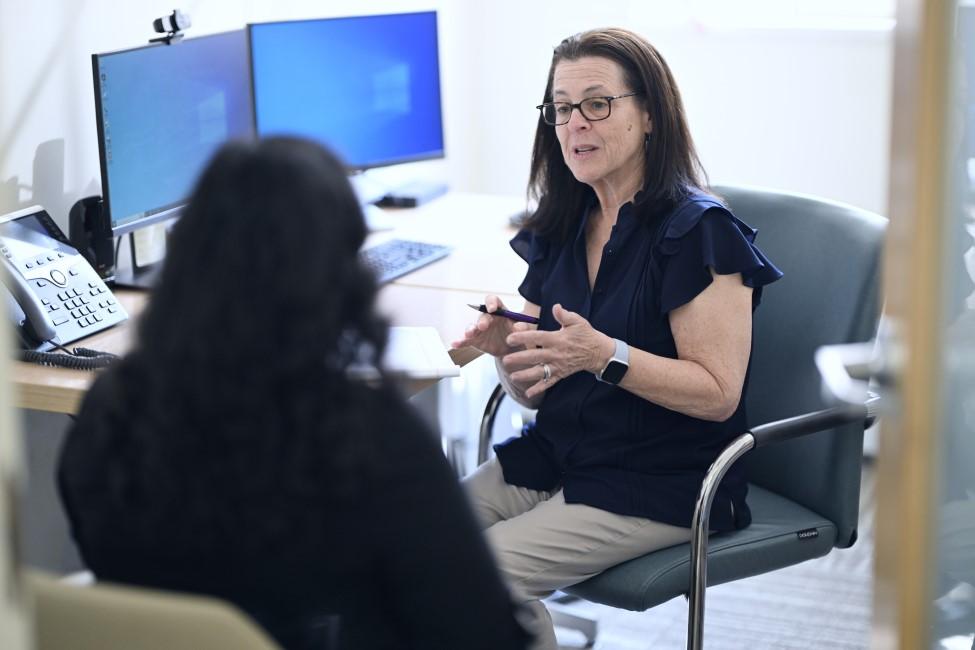
For decades, the PWJC, a nonprofit legal center serving Westchester and Putnam Counties, has provided free legal services to victims and survivors of domestic violence, sexual assault, and elder abuse. PWJC helps individuals navigate the legal system and obtain services related to divorce, custody, support, financial exploitation, public benefits, and housing.
Through outreach events and training programs the Center raises awareness, educates the community, and trains judges, police officers, attorneys, and social service providers on best practices when working with victims of abuse.
For those who have been victims of domestic violence, sexual assault, or elder abuse, PWJC offices and clinic provides legal services to help them pursue justice.
I am forever grateful at the blessing that PWJC brought to my life. I am a changed and better person because of the care they took to ensure that my children and I were protected.
PWJC’s many programs offer free legal assistance, free legal clinics open to the public, and training for professionals. It also has a robust program to recruit, train, and supervise volunteers. A dedicated team of volunteers include those who have some legal training -- such as lawyers, paralegals, and law students -- and those who bring other skills to Center programs, such as community members, and high school and college students.
Pro bono volunteers can review case histories, draft legal documents, prepare clients for oral testimony, and represent clients at court proceedings for orders of protection, conduct client interviews, handle calls on a legal helpline, arrange for service of papers on the defendant, file documents with the court, and assist attorneys in their cases. Through the PWJC’s Court Accompaniment, Respect and Empowerment (CARE) Program, trained volunteers accompany domestic violence victims throughout their court experience. C.A.R.E. volunteers give emotional support to PWJC clients and allow attorneys to focus on necessary legal preparation before a case.
Because of the Center’s affiliation with the Elisabeth Haub School of Law at Pace University, law students are an integral component of the Center’s innovative and highly successful programs. At the Center, law students are assigned to work in specific programs and mentors provide training and ongoing supervision and guidance.
Through the PWJC, Haub Law students can participate in Family Court Externships and a full-time, 10-week Summer Internship Program. These two programs provide law students with a foundation in the dynamics of domestic violence, as well as family court practice and procedure. Law students are taught relevant areas of the substantive law needed to effectively represent domestic violence victims and survivors in family court, and they gain an opportunity to develop effective client interviewing, petition drafting and case presentation skills on a daily basis.
“I think the students really enjoy it,” PWJC Executive Director Cindy Kanusher said. “They get to develop practical skills, including interviewing clients and standing up in court.” She estimates that as many as 400 law students have come through training programs at PWJC.
At the main PWJC office located on the Haub Law campus, high school and college students as well can assist in a variety of tasks to support the legal team, including maintaining PWJC’s case management system, case files, and legal resources databases.
The PWJC’s efforts are widely recognized. Recently Kanusher was named to City & State’s inaugural Trailblazers in Law, which honors “a select group of leaders who are using their legal training to make the world a better place.” City & State said that the Center “developed into a legal services and training center serving over 3,500 victims and survivors of interpersonal violence annually on her watch.”
Also, this year, Kanusher was honored with the Visionary Award at Haub Law’s annual Leadership Awards Dinner. She was selected because she exemplifies what an advocate, mentor, and leader stands for, and because she has dedicated her career to assisting victims of domestic violence, and to providing representation to the underrepresented. Upon accepting the award, Kanusher described the impactful work of PWJC, sharing how her own childhood experiences inspired her life-long commitment to pursuing justice for women and families.
Providing Immediate Support
PWJC’s main office on the Haub Law campus houses the Walk-In Legal Clinic, which provides support and services for victims of domestic abuse. The Center also has attorneys in its Family Court Legal Program in New Rochelle, White Plains and Yonkers Family Courts who can seek an emergency Order of Protection for victims of abuse.
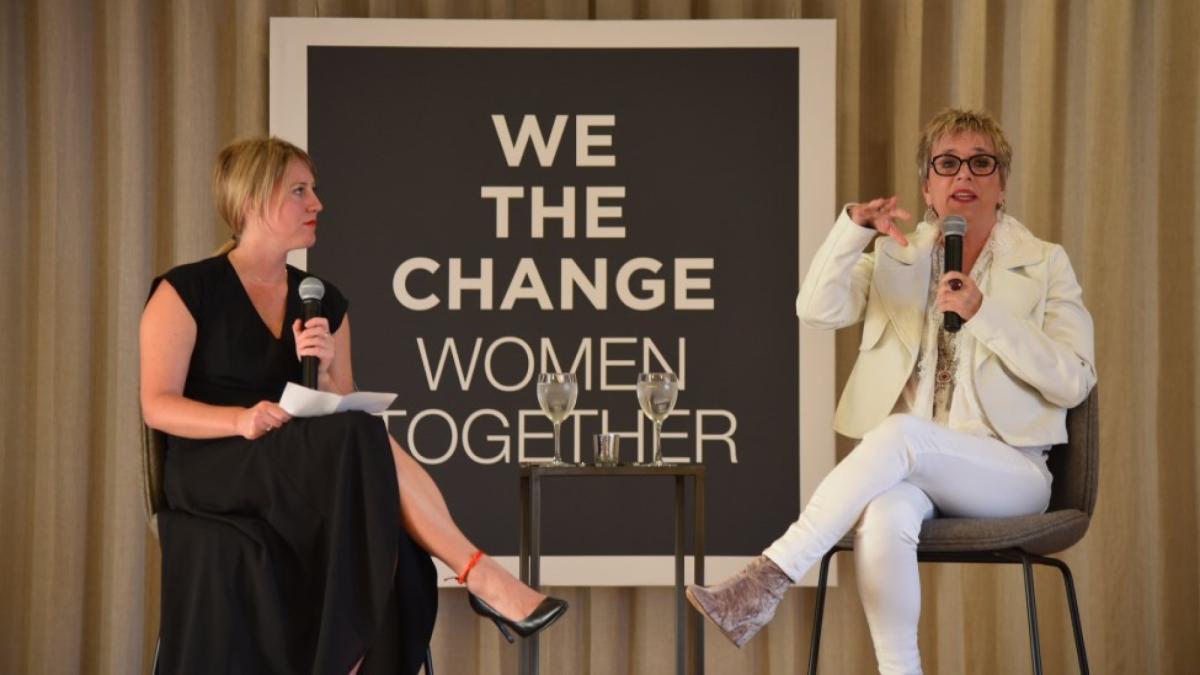
The Walk-In Legal Clinic has three attorneys and a paralegal on staff, and also 15 attorneys who volunteer their time. Karen Lanci, Assistant Director of PWJC’s Walk-In Legal Clinic, said there is no income cap for those seeking a one-time legal consultation, which can be in person or by Zoom. A consultation entails legal advice and suggestions for next steps, which often includes a referral to another attorney. The Clinic itself does not offer ongoing representation.
“We practice family law, and we focus on elder abuse, sexual assault, and domestic violence issues, but often people come in with immigration law, housing and other legal issues, for which we can offer referrals to other nonprofits,” Lanci said.
The Walk-In Clinic began in 2018, but two years later when COVID forced the closure of Pace campuses, it began offering consultations via Zoom. Now about 80 percent of legal consultations are still being held virtually, which has allowed the Clinic to broaden its outreach and keep more volunteer attorneys on board.
“It ended up being a net-positive,” Lanci said. Jana Kosberg-Kleidman, PWJC Director of Development and External Relations, said that what distinguishes the PWJC from other organizations is its commitment to increasing access on a continuous basis. “We have the walk-in clinic, which makes services as accessible as possible and available if needed, so while the pandemic presented challenges with increased isolation, the silver lining was the ability and recognition that services could be made remote, and it was eye-opening in that these services could keep being provided that way if needed even when things ‘returned to normal.’”
The PWJC offers a number of other programs under its umbrella, including a help line on which anyone can call for free legal information, a Family Law Unit for people seeking ongoing representation in Westchester and Putnam Counties, a program called Be Prepared that helps with wills, an Elder Justice Unit offering abuse victims legal representation and referrals, a Moderate Means Program for helping lower income clients with divorces, and the Family Court Legal Program, offering emergency protective orders through local family courts.
The Family Court Legal Program was the first PWJC program to provide direct legal services. FCLP provides emergency legal services on a walk-in basis to victims and survivors of domestic violence. Clients get immediate help from attorneys, including often same-day emergency orders of protection, as well as emergency custody and spousal support.
The FCLP program, which has served nearly 1,000 clients annually since its establishment more than 20 years ago, helps clients manage emergencies, and stabilize dangerous situations. The program connects clients to collaborative organizations for additional legal representation and individual counseling. The initiative demonstrates the effectiveness of agencies combining their expertise and resources when serving vulnerable populations.
Former FCLP intern and 2005 Haub Law alumna, Joyce Miller, now Chief of the Domestic Violence Bureau in the Westchester County District Attorney’s Office, said she was part of a group of rising 2L students who were put through an intensive week-long training to learn how to obtain family court orders of protection. She then started working in the FCLP in the Westchester County Courthouse, where she assisted clients in obtaining protection orders.
“I was exposed to a work that I never knew existed and was shocked to hear how many victims of domestic violence there were in Westchester. I will never forget as we studied a domestic violence criminal case the chills that I experienced when they played for us a 911 call of a woman screaming for help. I knew then and there that this was such incredibly important and hard work and was grateful to be part of this clinical internship,” said Assistant District Attorney Miller.
“This experience taught me that I wanted to use my law degree to do meaningful public service work, and when I went on a few years later to apply for a job as a prosecutor with the Westchester County District Attorney’s Office, and when they asked me where I saw myself in 10 years, I told them the Domestic Violence Bureau, citing my rewarding time in the FCLP. I was placed there that same year within three months and have been doing special victims work since. Seventeen years later, I am proud to say that I am the Chief of the Domestic Violence Bureau, and though the work is still hard, it is equally and still so rewarding and I know that I wouldn’t be here today if it wasn’t for the FCLP,” Miller said.
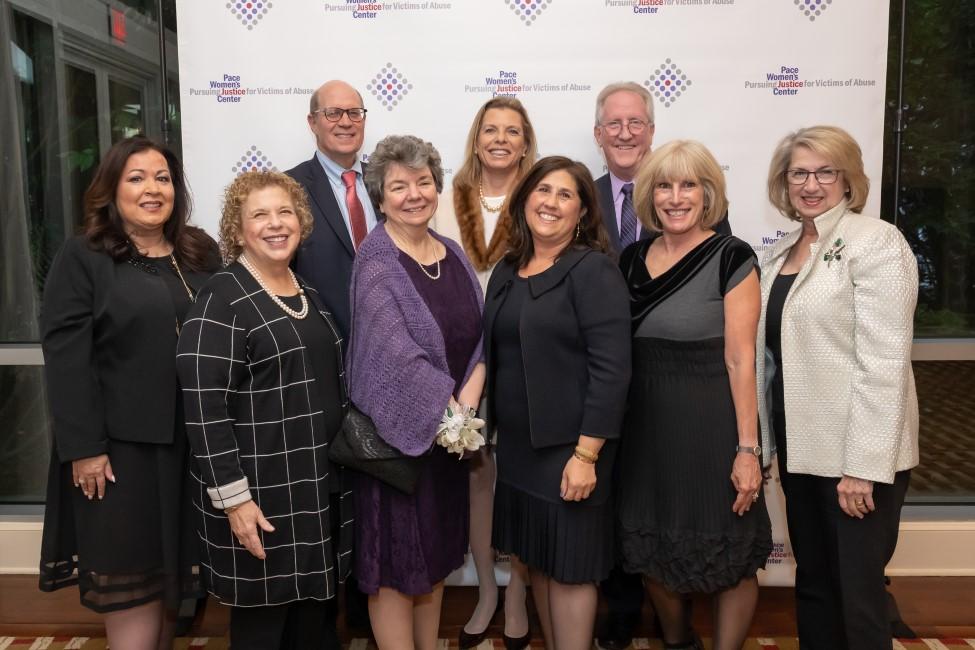
A collaborative initiative between the PWJC, Legal Services of the Hudson Valley and My Sister’s Place, the FCLP was chosen as the 2019 Organization Changemaker by Nonprofit Westchester. Haub Law student Emily Zahran says her work at FCLP has taught her how to interview clients on sensitive subjects and effectively to capture their experiences in writing while drafting court documents.
“I have been able to meet clients of all different ages, backgrounds, and socioeconomic statuses. I have sat in on interviews with these clients and taken their information and drafted family offense, custody, and child support petitions. The family offense petitions are usually where we insert the narrative, meaning the client’s story, which has been impactful for me because it has taught me how to write concisely. These clients need to get these orders quickly, and therefore it is important that when I draft, I get their story across but in an efficient manner. “
Zahran said interviewing FCLP clients who have been traumatized involves reading people carefully and offering emotional support. “Domestic violence clients often are holding back because they are scared or embarrassed. Clients taking this first step often are unsure how much to share or what is worth sharing. If you just listen and watch their body language you can learn a lot more about them and their experiences. Also, listening is important because having clients repeat such intimate details can wear them down. I’ve also learned how to support clients because things can get emotional, and it’s important to acknowledge that and remind them it is normal to be emotional and take time to comfort them.”
Most importantly, Zahran said, her FCLP work has taught her “how important it is to love what you do.” All the staff at FCLP are passionate and driven to help these clients and it shows. Even in a difficult field, the staff is upbeat and kind, and they truly care for the clients, and I want to carry that on in my legal career because the clients can tell that they matter, and it makes for a wonderful client-lawyer relationship.”
This experience taught me that I wanted to use my law degree to do meaningful public service work...
Raising Funds and Awareness

An integral part of what allows desperately vital organizations like PWJC to keep going is fundraising. Throughout the year, PWJC holds a series of fundraising events that contribute to and help support the organization’s important mission. Recently, the PWJC has held very successful benefit concert events that feature high-profile musicians, including singer-songwriter Sara Bareilles and folk-rock duo Indigo Girls. The Center will also hold another benefit concert in the fall. Other fundraising events include cocktail parties, hikes, movie screenings, comedy shows, and interviews.
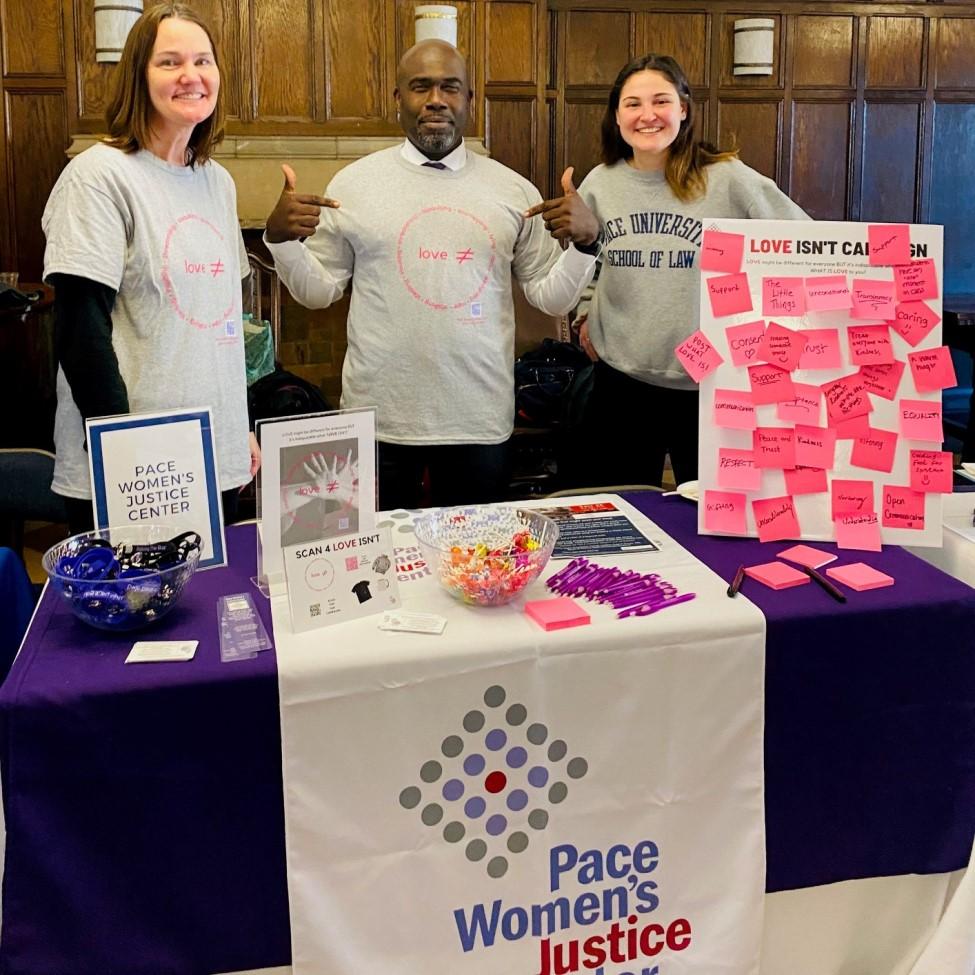
Last year, PWJC launched a popular educational campaign around Valentine’s Day called “Love Isn’t.” The initiative utilized social media to share warning signs to raise awareness of unhealthy relationships. While promoting the idea of what love is, the campaign also educated people on what love is not: Love does not insult, threaten, bully, gaslight, or assault.
The program is aimed at 15-34 year-olds and social media, as females in the 18-34 age bracket experience the highest rates of intimate partner violence, according to a 2010 Center for Disease Control and Prevention survey. “Love Isn’t” received widespread media attention, including a feature on CBS news.
Kanusher says education and conversation are critical tools for prevention of relationship abuse. “We feel it’s really important for us especially to reach young people, who are beginning to discover relationships,” she said. She added that this includes college students, as well as high school students or those even younger. This work overlaps what they are already doing representing clients with Title IX discrimination, sexual harassment and sexual violence claims in schools receiving federal funding.
With the acknowledgement that love is different for every individual, the PWJC campaign centers around a graphic design identifying a series of behaviors that define what “Love Isn’t,” and provides the organization’s contact information via QR code. The “Love Isn’t” graphic is available on t-shirts, hoodies and ceramic mugs, and additional donations to PWJC are encouraged, as is posting a video in support of the campaign in which people express what “Love Is…” to them.
When Kanusher first arrived in 1998, the PWJC had just two other attorneys, and the Center focused on training prosecutors and police on handling domestic violence and sexual assault cases. Now the Center has a total staff of 35, including five paralegals, 26 attorneys – both fulltime and part-time – development and finance staff, and a wide variety of programs.
Kanusher said she would like to continue to add lawyers to the staff, increasing the PWJC’s ability to represent victims of sexual assault on college campuses in Westchester and Putnam Counties.
“The more lawyers we can get, the more people we can help,” she said. Ultimately, though, Kanusher has a higher aspiration. “I hope one day we will be out of business,” she said.
PWJC Executive Director Dedicated to Serving the Community
“My work at PWJC is very personal for me,” said Cindy Kanusher, Executive Director of Pace Women’s Justice Center, after she received the Visionary Award at Haub Law’s Law Leadership Dinner in March.
“It is difficult for me to explain what it feels like to grow up in a home where there has been domestic violence and to hear your mother talk about experiencing abuse. What I know is that it feels overwhelming, sad, lonely and there is a sense of powerlessness … as a child and as an adult. This is why I have spent almost my entire career at PWJC working to make sure that victims and survivors know that they are not alone and that there is a place where they can go for help,” she said.
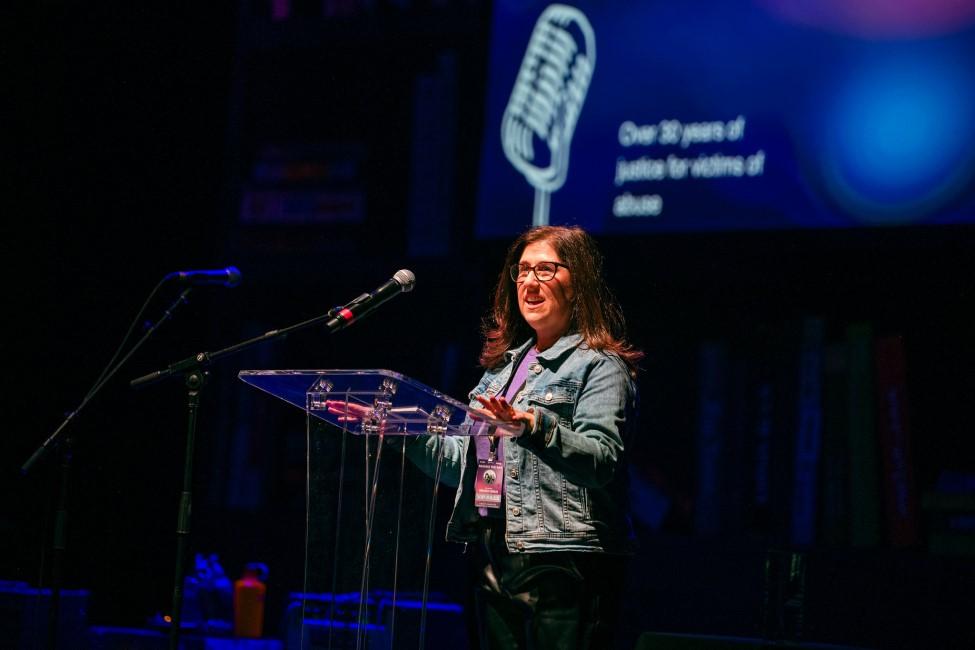
With more than 25 years of dedicated service to PWJC, Kanusher has demonstrated unwavering commitment and exceptional leadership in advocating for victims and survivors of abuse, as well as providing representation to the underrepresented. Throughout her career, Kanusher has been instrumental in shaping PWJC’s mission and vision. During her tenure, PWJC has grown into a highly respected, multi-faceted legal services and training center serving thousands of victims and survivors of interpersonal violence annually, providing invaluable legal assistance to those in need and tirelessly championing the cause of justice.
Shortly after becoming PWJC’s Executive Director in 2015, Kanusher identified a need for a more flexible service model and developed the idea of a walk-in clinic that provides free, bilingual legal services to victims of domestic violence, sexual assault, and elder abuse, in a safe and non-threatening location. She was also integral in spearheading fundraising efforts to build a new clinic and office space for PWJC, which allowed it to increase services.
Kanusher’s leadership has empowered survivors to navigate the legal system with confidence and obtain the support they need to rebuild their lives. Since its opening in June 2018, the Walk-In Clinic has been serving 70-80 victims of abuse per month, increasing services by 20%.
This is why I have spent almost my entire career at PWJC working to make sure that victims and survivors know that they are not alone and that there is a place where they can go for help.
PWJC: A Timeline of Impact
1991
Pace Women’s Justice Center originally launched as the Battered Women’s Justice Center. It was established by Governor Mario Cuomo in a joint partnership with New York State Office for the Prevention of Domestic Violence (OPDV) and Pace University School of Law, under the leadership and guidance of Law School Dean Steven H. Goldberg. Attorney Michael G. Dowd, whose pioneering work as a criminal defense attorney defending battered women (often pro bono) who were being tried for murdering their batterers, was appointed the founding director.
Victoria L. Lutz, Esq. is hired to create domestic violence training programs, notably for prosecutors throughout New York State. Lutz became the Center’s Executive Director in 1996.
1996
Audrey Stone joined the Center as Associate Director, serving as coordinator for OPDV’s Prosecutor’s Training Program. Under the leadership of Lutz and Stone, the Battered Women’s Justice Center left the auspices of OPDV, and became an integral part of Pace Law School.
1998
The Center was renamed the Pace Women’s Justice Center. Along with Law School Dean Richard Ottinger, Lutz and Stone expanded the Center’s training programs into additional areas, including sexual assault, elder abuse prevention, and teen dating violence and also began to offer direct legal services for domestic violence victims.
Cindy Kanusher begins her work with PWJC as a staff attorney and running a series of impactful training programs throughout NY State.
1999
The Center’s first direct legal services program for clients, the Family Court Legal Program (FCLP) is established in White Plains Family Court.
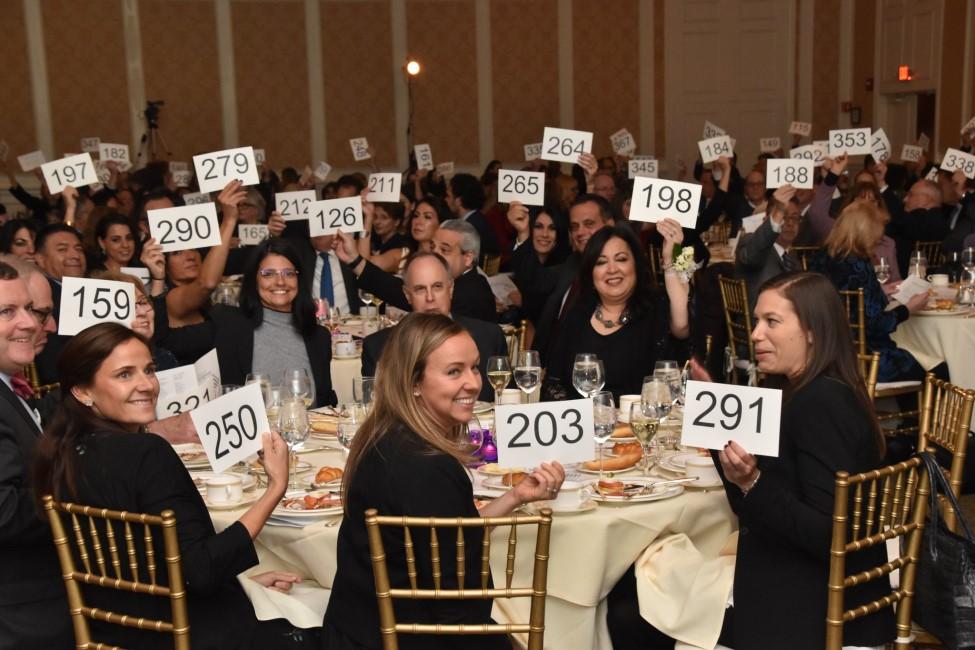
2001
FCLP is expanded and opens in Yonkers Family Court.
The Center named our main office “Gail’s House,” and our Advisory Board the “Friends of Gail” in memory of Gail Katz, the sister of Alayne Katz, Esq., who is chairperson of the Center’s Advisory Board and a longtime supporter of the Center. On July 7, 1985, Dr. Robert Bierenbaum killed his wife, Gail Katz Bierenbaum, a doctoral student in psychology. The establishment of “Gail’s House” is a lasting tribute to Gail, and to the many women like her who struggle with the terrors of domestic violence, and to her family.
2004
Susan L. Pollet, Esq. serves as Executive Director of PWJC.
2005
The Family Law Unit was established to provide free legal services to clients in a wide array of legal matters arising from domestic violence and abuse in both Westchester and Putnam counties. PWJC’s Elder Justice program is established through a grant from Westchester County Department of Senior Programs and Services.
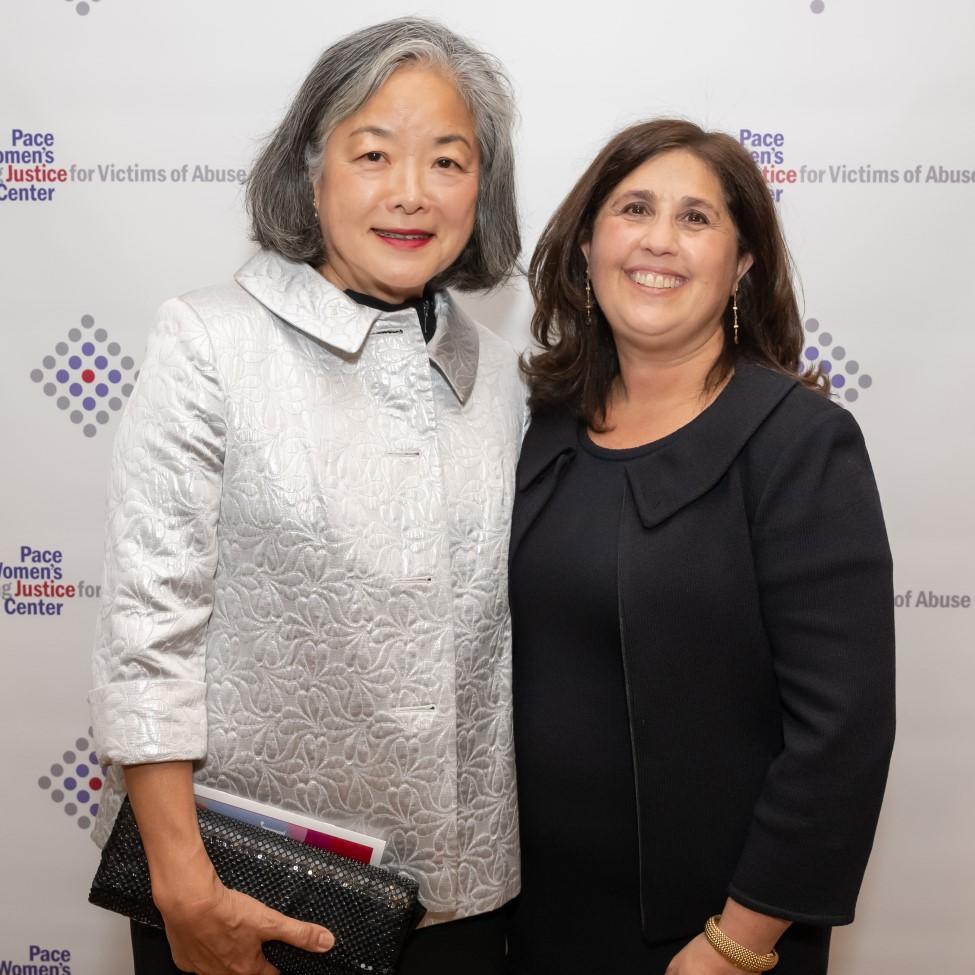
2006
Jane Aoyama-Martin serves as the Executive Director of PWJC. Under Aoyama-Martin, the Center greatly expanded the delivery of much needed legal services to domestic violence and elder abuse victims through the development of the Pro Bono Legal Program. Cindy Kanusher serves as the Center’s Deputy Director during this time.
2015
Cindy Kanusher becomes PWJC’s Executive Director.
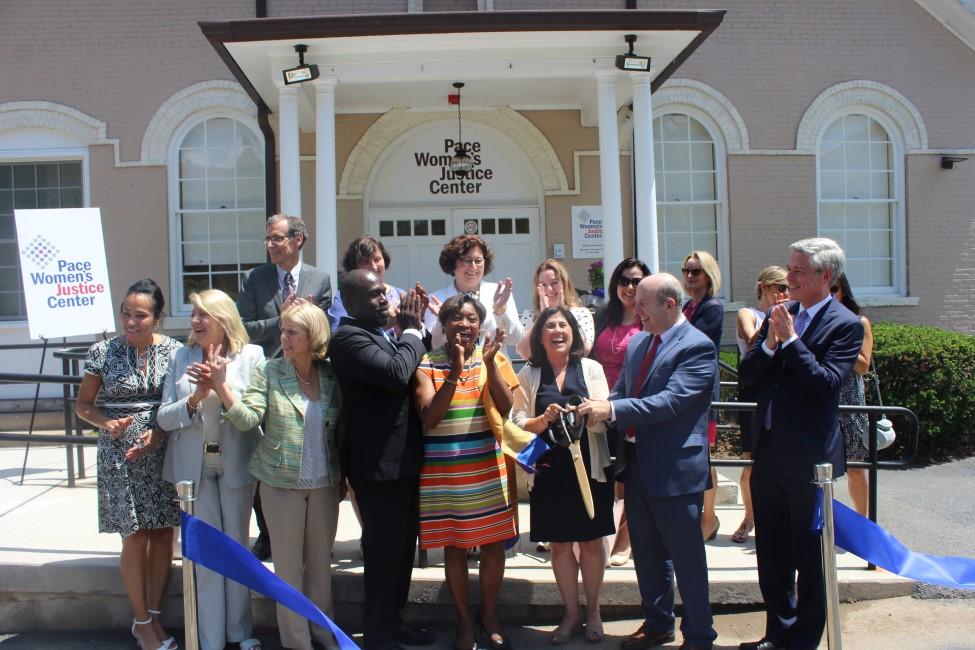
2018
PWJC opens new Walk-In Clinic and office space.
2019
Family Court Legal Program named Organization Changemaker by Nonprofit Westchester.
2023
PWJC served approximately 2,453 clients.
Pace Women's Justice Center Advisory Board
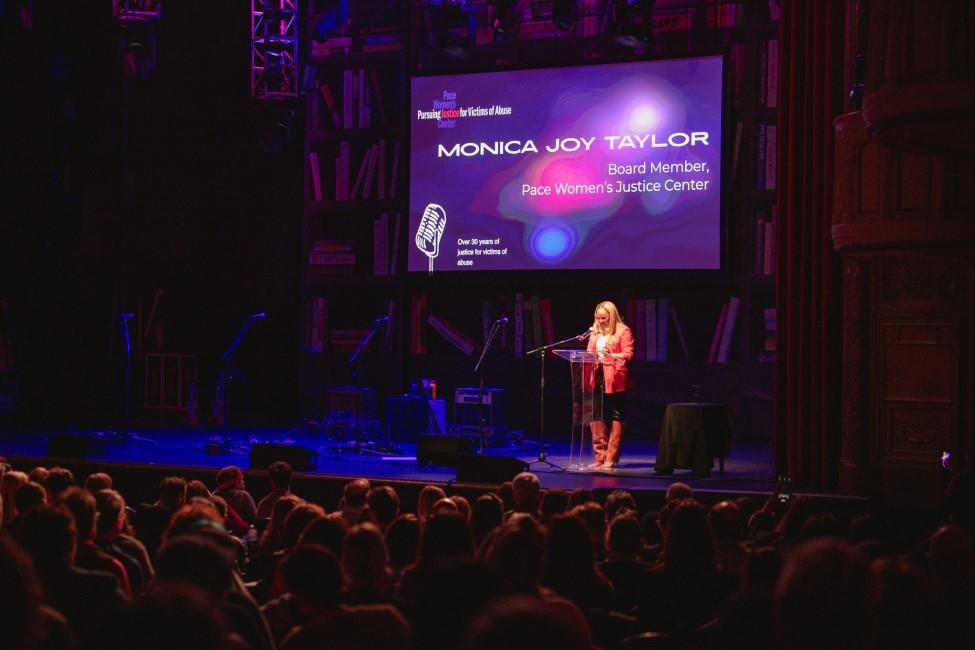
Chair
- Alayne Katz, Esq.
Board Members
- Lauren C. Enea, Esq.
- Carold Feldman M.S., NCSP
- Prof. Margaret M. Flint, Esq.
- Jacqueline Hattar, Esq.
- Caroline Hay
- Pamela Kaufman
- Samantha A. Lyons, Esq.
- Tamara A. Mitchel, Esq.
- Chief David M. Ryan
- Steven A. Schurkman, Esq.
- Daniel Seymour
- Sarah Steckler, Esq.
- Monica Taylor
- Kadeen Wong, Esq.
Cooper Koch Struggled to Get Roles for Years. Then Came ‘Monsters’
Sands College of Performing Arts alumnus Cooper Koch ’18 stars in a new Netflix drama, Monsters, Yahoo News reports.
New York Mayor Eric Adams Charged in Turkey Bribery, Fraud Scheme
Elisabeth Haub School of Law Professor Bennett Gershman provides insights to Reuters regarding the recent charges against New York City Mayor Eric Adams and the challenges of removing him from office – and the story gets picked up by hundreds of publications around the world. In the article, U.S. prosecutors have charged Adams with accepting illegal campaign contributions and luxury travel accommodations from Turkish nationals attempting to sway his influence, capping an investigation that has sent the largest U.S. city's government into turmoil.
